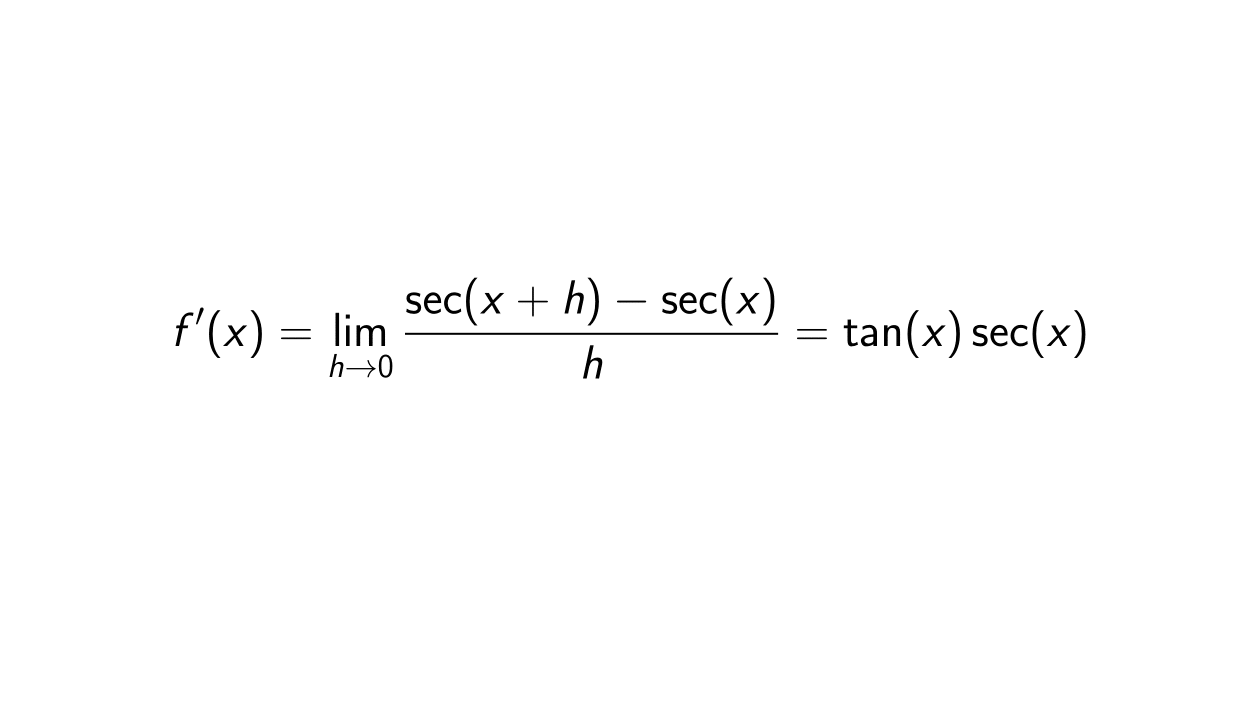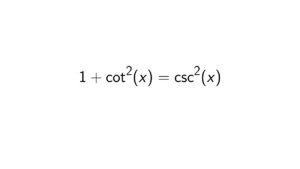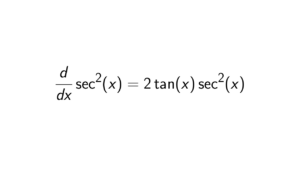Proof. Let f(x) = \sec(x) = \frac{1}{\cos(x)}. Then
\begin{align*}
f'(x) &= \lim_{h \rightarrow 0} \frac{f(x + h) - f(x)}{h} \\
&= \lim_{h \rightarrow 0} \frac{\sec(x + h) -\sec(x)}{h} \\
&= \lim_{h \rightarrow 0} \frac{\frac{1}{\cos(x + h)} - \frac{1}{\cos(x)}}{h} \\
&= \lim_{h \rightarrow 0} \frac{\frac{\cos(x) - \cos(x + h)}{\cos(x + h)\cos(x)}}{h}
\end{align*}\begin{align*}
\cos(A) - \cos(B) = -2\sin(\frac{A + B}{2})\sin(\frac{A - B}{2})
\end{align*}\begin{align*}
\cos(x) - \cos(x + h) = -2\sin(\frac{2x + h}{2})\sin(\frac{-h}{2})
\end{align*}\begin{align*}
\lim_{h \rightarrow 0} \frac{\frac{-2\sin(\frac{2x + h}{2})\sin(\frac{-h}{2})}{\cos(x + h)\cos(x)}}{h} &= \lim_{h \rightarrow 0} -\frac{\sin(-h/2)}{h/2} \cdot \lim_{h \rightarrow 0} \frac{\sin(\frac{2x + h}{2})}{\cos(x + h)\cos(x)} \\
&= \lim_{h \rightarrow 0} \frac{\sin(h/2)}{h/2} \cdot \lim_{h \rightarrow 0} \frac{\sin(\frac{2x + h}{2})}{\cos(x + h)\cos(x)} \\
&= \lim_{h \rightarrow 0} \frac{\sin(\frac{2x + h}{2})}{\cos(x + h)\cos(x)} \\
&= \frac{\sin(x)}{\cos^2(x)} \\
&= \frac{\tan(x)}{\cos(x)} \\
&= \tan(x)\sec(x).
\end{align*}

